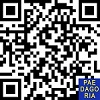PENGEMBANGAN MODUL PEMBELAJARAN MATEMATIKA SD BERORIENTASI HOTS (HIGHER-ORDER THINKING SKILLS)
Abstract
Abstrak: Penelitian ini bertujuan untuk mengembangkan modul Pembelajaran Matematika SD berorientasi HOTS (Higher-Order Thinking Skills) dan mendeskripsikan validitasnya. Penelitian ini menggunakan model R&D (Research and Development) yang dikembangkan oleh Thiagarajan, Semmel dan Semmel. Penelitian ini melibatkan subyek ujicoba terbatas mahasiswa Program Studi Sekolah Dasar, semester ganjil 2018/2019, Universitas Wijaya Kusuma Surabaya (UWKS). Instrumen yang digunakan dalam penelitian ini berupa lembar validasi ahli dan lembar respon mahasiswa. Data dalam penelitian ini adalah berupa penilaian ahli dan data respon mahasiswa terhadap modul yang dikembangkan. Data yang digunakan dalam penelitian ini adalah deskriptif kuantitatif sederhana. Jadi, analisa data dilakukan dengan mengubah data-data kuantitatif yang diperoleh melalui lembar validasi ahli dan respon mahasiswa menjadi data kualitatif. Hasil dari penelitian ini adalah modul pembelajaran matematika SD berorientasi HOTS (higher-order thinking skills) yang telah dikembangkan valid berdasarkan pendapat para ahli dan respon mahasiswa. Menurut para ahli materi, tingkat validitas isi modul yang dikembangkan sebesar 93,75% dengan kriteria baik sekali. Sedangkan menurut ahli bahasa, validitas bahasa modul yang dikembangkan sebesar 83,33% dengan kriteria baik dan membutuhkan beberapa perbaikan sebagaimana yang telah disarankan. Selain itu, dalam uji coba terbatas, sebesar 98,67% mahasiswa memberikan respon positif terhadap modul yang dikembangkan.
Abstract: The aim of this research is to develop mathematics learning for elementary school module based on higher order thinking skills (HOTS) and to describe its validity. This research uses R&D (research and development) model that is developed by thiagarajan semmel and semmel. It is involved the students of elementary school study program at odd semester in 2018/2019 in Wijaya Kusuma University of Surabaya as the subject of tryout. Instruments which are used in this research are experts’ validation sheet and students’ responses sheet. The assessments that are given by the experts and the responses of the students are collected as data. The collected data are analyzed using simple descriptive quantitative. It is meant that the collected quantitative data that are gathered during the research are changed into qualitative one in order to describe them. The product of this research is mathematics learning for elementary school module based on higher order thinking school (HOTS). Based on the validation of the experts, it shows that the content validity of this module is about 93.75% and it considers as very good. In addition, the language validity of this module based on language’s expert is about 83.33% and it considers as good. Therefore, slight improvement on the language has been made according to the experts’ opinion. Moreover, 98.67% of the students give positive responses on the developed module.
Keywords
Full Text:
Download [PDF]References
Ahmad, S., Prahmana, R. C. I., Kenedi, A. K., Helsa, Y., Arianil, Y., & Zainil, M. (2018). The instruments of higher order thinking skills. Journal of Physics: Conference Series, 943(1). https://doi.org/10.1088/1742-6596/943/1/012053
Al-Huneidi, A. M., & Schreurs, J. (2012). Constructivism Based Blended Learning in Higher Education. International Journal of Emerging Technologies in Learning, 7(1), 4–9. https://doi.org/10.3991/ijet.v7i1.1792
Bass, J. E., Contant, T. L., dan Carin, A. A. (2009). Methods for teaching science as inquiry, tenth edition. Boston: Allyn & Bacon.
Brookhart, S. M. (2010). How to assess higher-order thinking skills in your classroom. Beauregard St: ASCD.
Hassan, M. N., Mustapha, R., Azmah, N., Yusuff, N., & Mansor, R. (2017). Development of Higher Order Thinking Skills Module in Science Primary School : Needs Analysis. International Journal of Academic Research in Business and Social Sciences, 7(2), 624–628. https://doi.org/10.6007/IJARBSS/v7-i2/2670
Hyder, S., & Bhamani, S. (2017). Bloom’s Taxonomy (Cognitive Domain) in Higher Education Settings: Reflection Brief. https://doi.org/10.13140/RG.2.2.14634.62406
Jerald, C. D. (2009). Defining a 21st century education. The Center For Public Education.
Kane, S. N., Mishra, A., & Dutta, A. K. (2016). Preface: International Conference on Recent Trends in Physics (ICRTP 2016). Journal of Physics: Conference Series, 755(1). https://doi.org/10.1088/1742-6596/755/1/011001
Lilik Mutrofin, Mohamad Nur, L. Y. (2016). Developing Teaching Materials Using 5E Model of Instruction To Increase Students ’. Pendidikan Sains Pascasarjana Universitas Negeri Surabaya, 5(2).
Pebriantika, L. (2019). Needs Analysis For The Development Of E-Modules As Teaching Materials. Asia Proceedings of Social Sciences, 4, 49–51. https://doi.org/10.31580/apss.v4i3.843
Pratiwi, P. (2017). Pengembangan Modul Mata Kuliah Penilaian Pembelajaran Sosiologi Berorientasi Hots (Higher Order Thinking Skills). Jurnal Cakrawala Pendidikan, 36. https://doi.org/10.21831/cp.v36i2.13123
Singh, C. K. S., Singh, R. K. A., Singh, T. S. M., Mostafa, N. A., & Mohtar, T. M. T. (2018). Developing a Higher Order Thinking Skills Module for Weak ESL Learners. English Language Teaching, 11(7), 86. https://doi.org/10.5539/elt.v11n7p86
Suhendi, A., & . P. (2018). Constructivist Learning Theory: The Contribution to Foreign Language Learning and Teaching. KnE Social Sciences, 3(4), 87. https://doi.org/10.18502/kss.v3i4.1921
Tan, S. Y., & Halili, S. H. (2015). Effective Teaching of Higher-Order Thinking (HOT) in Education. The Online Journal of Distance Education and E-Learning, 3(2), 41–47.
Tutkun, O. F. (2012). Bloom ’ s Revized Taxonomy and Critics on It Bloom ’ s Revized Taxonomy and Critics on It. (July).
DOI: https://doi.org/10.31764/paedagoria.v11i2.2486
Refbacks
- There are currently no refbacks.
Copyright (c) 2020 Universitas Muhammadiyah Mataram

This work is licensed under a Creative Commons Attribution-ShareAlike 4.0 International License.
Paedagoria : Jurnal Kajian, Penelitian dan Pengembangan Kependidikan
Fakultas Keguruan & Ilmu Pendidikan | Universitas Muhammadiyah Mataram.
_______________________________________________
 | Paedagoria : Jurnal Kajian, Penelitian dan Pengembangan Kependidikan |
______________________________________________
CURRENT INDEXING:
EDITORIAL OFFICE:


















